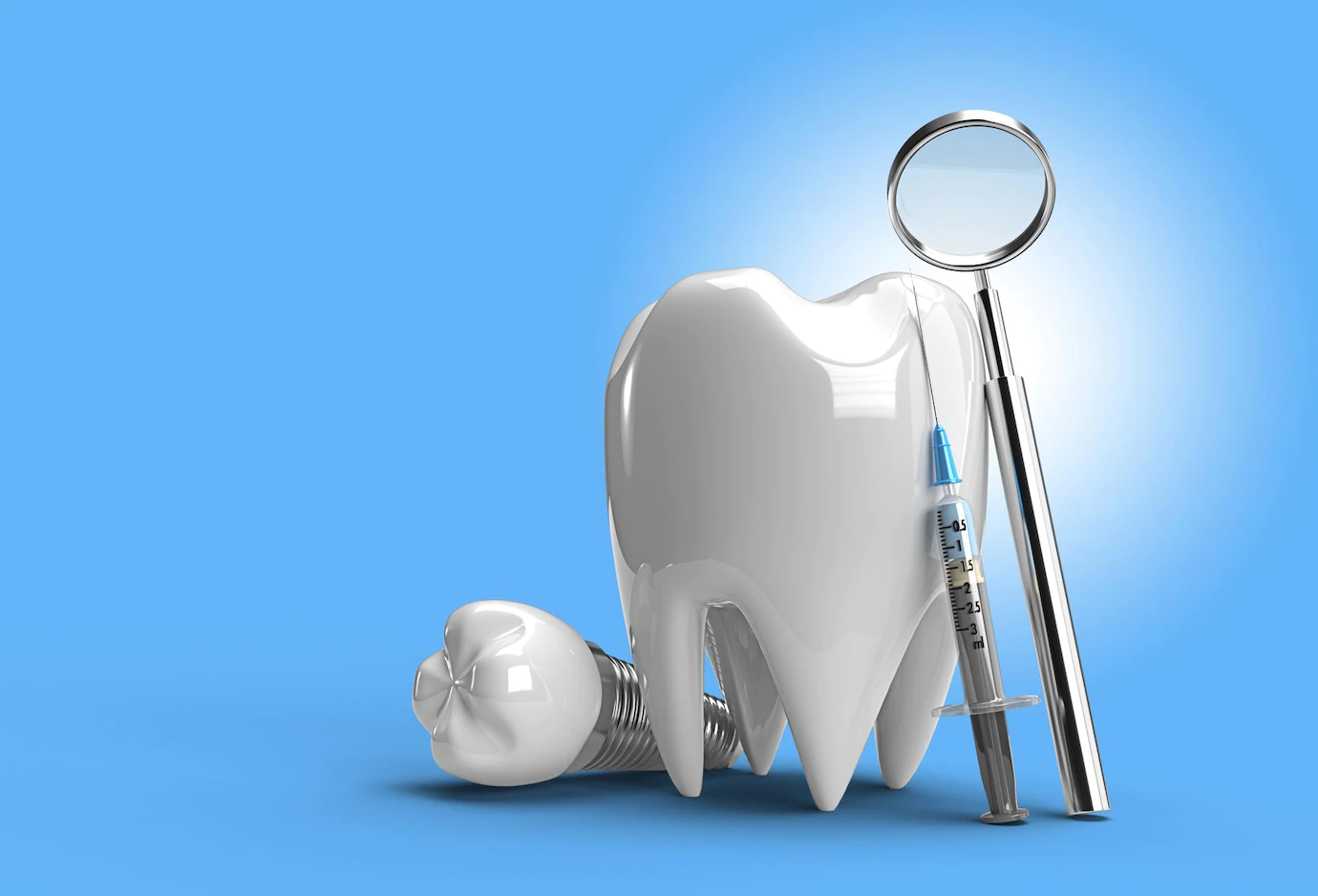
Teeth implants are an increasingly common way to replace missing teeth. They provide a more permanent solution than dentures or dental bridges and can often be operated relatively easily. But before taking the plunge and deciding on teeth implants, it’s important to know what the process will involve – pain in particular. Below we explain more about the typical pain associated with teeth implants and when to get help.
Types of Teeth Implants

There are two main types of teeth implants: Endosteal and Subperiosteal oral implants.
Endosteal oral implants are surgical posts that are placed directly into the jawbone. They provide a strong, secure foundation for permanent dental restorations such as full or partial dentures or dental crowns.
Subperiosteal oral implants are steel-frame structures that will be placed over the jawbone beneath the gum tissue. They anchor dental prosthetics onto an existing bone with metal screws.
No matter which type is used, the entire process of placing a tooth implant at Shields Dental Clinic in Limerick takes several months as it must undergo a process of osseointegration, which is where bone tissues fuse around the graft for anatomical stability and proper functioning.
The amount of pain associated with this procedure will vary from patient to patient but can generally be managed with localized anesthetics and sedation if necessary. As healing occurs, some swelling, soreness, and even bruising at the site may occur; however, this should not impact daily activities too much and should subside on its own in time.
If pain persists or becomes worse following the treatment, consult your dentist immediately as certain infections may occur that could cause damaging long-term effects on your oral health.
Reasons for Getting Teeth Implants

This procedure can be an effective solution in many instances, ranging from minor damage to more extreme tooth loss. Understanding why teeth implants are necessary is important before deciding if this type of procedure is right for you.
• Missing teeth can cause a range of issues, including shifting and destabilization of the jawbone and surrounding teeth, as well as decreased self-confidence when smiling or speaking. An implant can restore the lost tooth to its natural function and appearance.
• When a person’s face experiences major injury or trauma, teeth are often damaged beyond repair. Teeth implants provide a life-like replacement that helps restore health and maintain facial structure after major trauma or accident.
• Tooth decay or cavities can require extensive dental work that may not always be able to fully restore the tooth’s function and appearance. If this is the case, an implant can be used as a permanent replacement for better oral health overall.
• Failures with other dental procedures: If there is a failure with other dental procedures like crown placement and bridgework, it may be necessary to turn to this kind of solution for restoration.
Pain Management

As with any surgery, teeth implants can cause discomfort during the procedure, and potentially even some pain afterward. Fortunately, most dentists are experienced in managing this pain with the proper techniques and medications.
Typically, surgery is done in stages over the course of several months. During each stage, local anesthesia may be administered to reduce pain while the implant is inserted into the jawbone. This local anesthesia numbs only certain areas of your mouth and lasts for a few hours after the procedure so that you can more comfortably receive numbing medications as needed.
If more than one implant is being placed, your dentist will likely administer sedatives or intravenous conscious sedation to help reduce feelings of anxiety or fear associated with multiple invasive treatments at once.
In essence, these types of sedatives make you sleepy without making you completely unconscious—so that your dentist can easily wake you up if there are any complications during the course of treatment.
Your comfort level during recovery will also depend on how well you manage post-operative discomfort at home. Your dentist may prescribe medications such as ibuprofen or prescription painkillers to help address any ongoing discomfort after the procedure—ensuring that it doesn’t interfere with normal functioning throughout your recovery period.
For milder cases of post-procedure discomfort, alternate treatments such as cold compresses can also be useful in providing some relief from symptoms without relying on medication alone.
Most importantly, never hesitate to reach out to your doctor if you’re concerned about any type of sustained physical distress or notice changes in how you feel after receiving dental implants; symptoms like prolonged swelling or severe pain may be indicators of a serious complication that needs immediate medical attention.
How to care for your teeth after the surgery?

Proper aftercare practices can help decrease healing time and reduce discomfort. Your dentist will provide specific instructions to follow during this period, which usually lasts up to three months following the surgery.
• Eat Soft Foods: During the first few days after your procedure, it is recommended that you stick to soft, non-spicy foods to avoid causing irritation or infection. This includes foods such as yogurt, mashed potatoes, rice pudding, cooked vegetables, and fish. Avoid crunchy foods such as chips and nuts that may irritate your gums or put too much pressure on your gums.
• Practice Good Oral Hygiene: Your dentist will provide specific guidance about brushing and flossing techniques for the best oral care during this period. Use a soft toothbrush with gentle pressure when brushing and use either waxed or unwaxed floss for cleaning between implants. If any pain occurs when flossing, stop immediately and contact your dentist for additional advice.
• Take Medication: Your dentist may prescribe antibiotics or other medication after surgery to help prevent infection at the implant site. It is important to take medication as directed in order to ensure a complete recovery from your procedure in the most comfortable way possible.
When to Seek Professional Help

During the procedure, it’s normal to feel temporary tooth pain due to forcing the implant into the jawbone and cutting off the tissue. Afterward, when healing occurs, some individuals may experience residual pain or even throbbing.
This typically increases during hard chewing and resolves in a few days or weeks. When these symptoms persist beyond two weeks after placement or if there are sharp shooting pains that continue suddenly regardless of whether you’re eating or not, it’s best to consult your dentist for further evaluation and treatment.
Other signs of problems include redness and swelling around the area where the procedure occurred, pain that radiates from your chin toward your ear on a constant basis as well as sensations such as electrical shock upon painful contact with implant-supported teeth.
It is also important to make sure there is good saliva flow after an implant surgery; excessive dryness could indicate an infection which would also necessitate a visit with a professional.
Conclusion
Note that while the process of getting a dental implant can be painful, with proper planning and the right medical professionals by your side, the entire experience can be made as comfortable and worry-free as possible.
Managing pain is an essential part of the dental implant process, and you should never hesitate to speak up if you need more help or support. Be sure to discuss any pre-existing medical conditions or allergies with your doctor beforehand. With a little preparation, you can rest assured that getting teeth implants doesn’t have to hurt!









